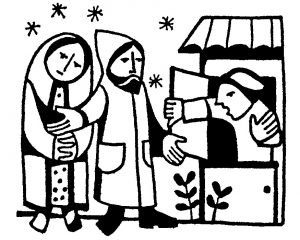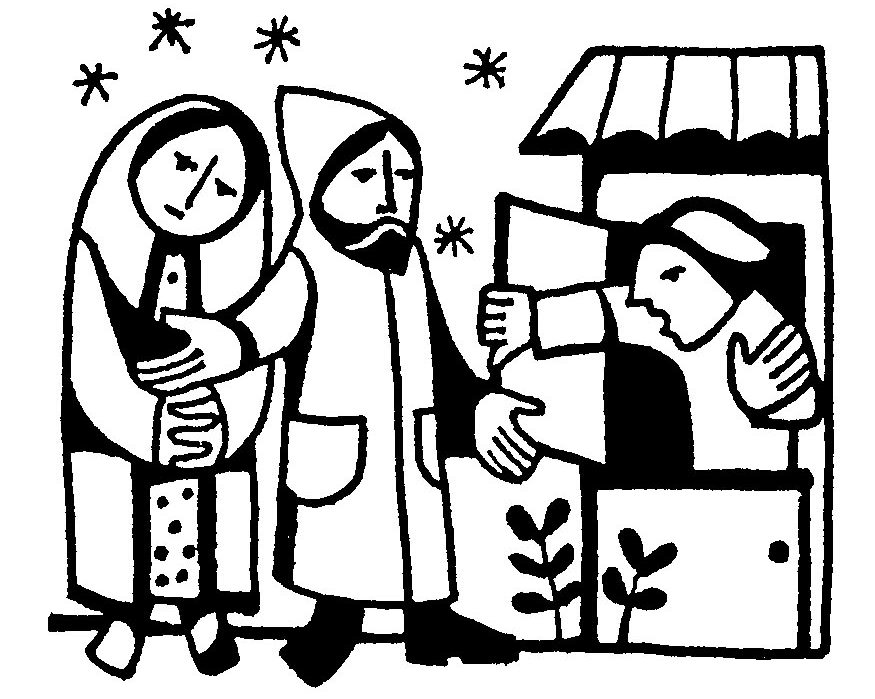
“Fearless Fundraising” is a series on church fundraising by Charles LaFond, an Episcopal Priest, author and master potter living on a farm in New Mexico. Charles is the author of many books including Fearless Church Fundraising and now, Fearless Major Gifts: Inspiring Meaning-making. For more information, videos and model documents go to fearlesschurchfundraising.com.
As we approach December, the annual pledge campaign in most churches is winding down. Assuming you launched your campaign in September and you wrapped it up with a special parish dinner for the entire parish the week before Thanksgiving, you must be tired by now. It has been eight full weeks of fundraising in which you have done good work to inspire stewardship and discernment on the part of your congregation. You are tired of talking about budgets and pledges and perhaps so too are they.
And of course it is soon Advent – a time to quiet, find stillness and seek out the imbedded longing for a Savior which is busting in the womb of our souls. Television and print advertising are ramping up the spending spree into which they hope you will careen with reckless, undiscerning abandon. The Grinch Who Stole Christmas is scratching to get out of your television set to scratch your nose with those long, green fingernails – mouthing off about greed with his three-sizes-too-small heart. The very idea of raising any more money seems exhausting at best and potentially infuriating to your pledgers at worst. And yet…and yet… there are going to be those in your congregation who are able and willing to make year-end gifts. They will. And if you do not remind them that your church is welcoming of their gifts, then they will respond instead, to the direct mail and emails of the Red Cross, YMCA, Museum and canine rescue mission – all of which will be asking your congregation to give year-end gifts.
Although your congregation is paying their pledges right now for 2017 (and ps…don’t forget to send a collections letter in the first week of December for final payments of this year’s pledge…churches get so busy in December wrapping up the pledge campaign and with Thanksgiving and Christmas preparations that they forget this final collections letter and miss those final payments. Be sure it looks like a thank you letter and not like an invoice!)…I digress… although your congregation is paying their pledges right now for 2017 and have just recently pledged for 2018; 20% of your congregation is able and willing to give a year-end gift. So I suggest you ask for it, specifically and intentionally.
If you think you would like to send something like this, here is a sample to help you get started on your first draft. You can download it here (pdf).
Some people find that at the end of the year, they would like to give a special gift to the mission of the church. For some it is a celebration of having …well… lived another great year! For others there was a year-end bonus to share, and for still others it simply makes sense to give a little extra money away simply because they can—and enjoy doing so. And for some, using a planned giving tool such as a charitable remainder trust makes it possible to make a large gift while also benefiting from the tax and living advantages of various planned gift mechanisms.
The church gratefully receives year-end gifts including stock and payment beyond YEAR completed pledges. Some whose income is based on annual sales have been conservative about their YEAR pledge and were waiting to make a year-end gift when they had a better picture of their financial situation. We have had to significantly tighten the belts of the budget this year and it is our hope that $200,000 in various additional gifts and special contributions will assist the mission and ministry of the church.
If you have money you would like to give to more fully fund the mission and ministry of the church at the year-end (before December 31, YEAR), or if you would like to honor a loved one, celebrate an event or give thanks for a blessing, please contact the rector.
If you decide to create a special fund with a special goal then that is even better. The year-end campaign should not be a plea to help you meet your 2017 budget. Nobody gives to a sinking-ship message. If you say you are short of funds in 2017 and ask for year-end gifts to close the gap then the donor will be quite rightly asking about your poor planning. Donors are not just making a gift – they are making an investment – even those deeply spiritual people who consider it stewardship.
One very effective plan is to combine year-end giving with the Christmas offering and make it one special campaign with a goal to specific achievement. True, you might be fighting with the flower committee for attention but I usually suggest that the flower money will come in regardless. So make your year-end giving something which accomplishes something Jesus would have recognized such as a focus on care for those experiencing homelessness. Advent is a time in which we notice that the Holy Family was also a homeless family. Partner with your local shelter and raise money for their mission by soliciting year-end gifts in your own congregation. Do not suggest that they give directly to the agency. Instead, create a volunteer and giving partnership between your church and that agency and ask for the gifts to go through the parish as a match to your volunteer effort. The same could be developed for a non-profit agency which cares for the planet or for abused women and children.

There are many in tour congregation with the ability to make a special year-end gift. They will not be offended of you ask, however they will notice if you do not. When they are considering their year-end gift, they will probably be looking at three or four agencies asking for the gift and your church should be one of those letters. Keep it brief (600 words or less) and make the case-for-support meaningful.
In the end, it is as much your responsibility to ask as it is their responsibility to simply say a polite and kind “yes” or “no.” If you do not ask, you will never know what might have been given. It was good that Mary and Joseph asked for a space in a stable that cold night in Bethlehem; and good also that the innkeeper said “yes.”

